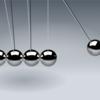Price:
956 EUR
Contact
Moscow Institute of Physics and Technology
Description
Counting is one of the basic mathematically related tasks we encounter on a day to day basis. The main question here is the following. If we need to count something, can we do anything better than just counting all objects one by one? Do we need to create a list of all phone numbers to ensure that there are enough phone numbers for everyone? Is there a way to tell that our algorithm will run in a reasonable time before implementing and actually running it? All these questions are addressed by a mathematical field called Combinatorics.
In this course we discuss most standard combinatorial settings that can help to answer questions of this type. We will especially concentrate on developing the ability to distinguish these settings in real life and algorithmic problems. This will help the learner to actually implement new knowledge. Apart from that we will discuss recursive technique for counting that is important for algorithmic implementations.
One of the main `consumers’ of Combinatorics is Probability Theory. This area is connected with numerous sides of life, on one hand being an important concept in everyday life and on the other hand being an indispensable tool in such modern and important fields as Statistics and Machine Learning. In this course we will concentrate on providing the working knowledge of basics of probability and a good intuition in this area. The practice shows that such an intuition is not easy to develop.
In the end of the course we will create a program that successfully plays a tricky and very counterintuitive dice game.
As prerequisites we assume only basic math (e.g., we expect you to know what is a square or how to add fractions), basic programming in python (functions, loops, recursion), common sense and curiosity. Our intended audience are all people that work or plan to work in IT, starting from motivated high school students.
Do you have technical problems? Write to us: This email address is being protected from spambots. You need JavaScript enabled to view it.
Specific details
Category of Education
Physical Science







 How to resolve AdBlock issue?
How to resolve AdBlock issue? 


Comments (0)